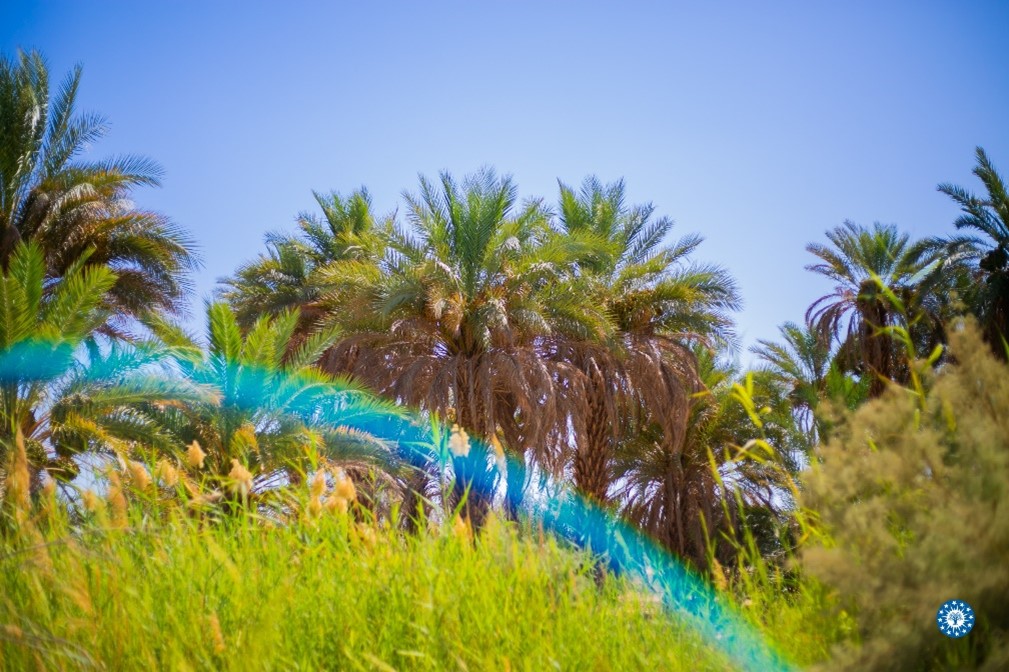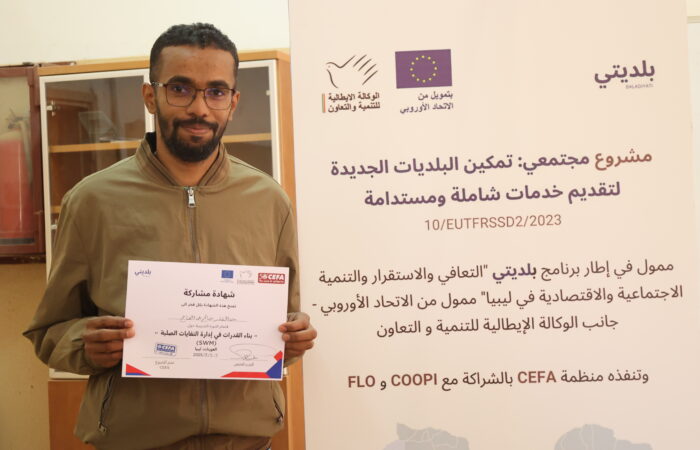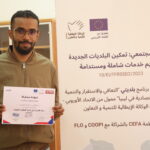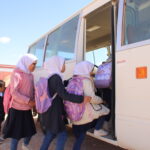For Saeed Aboulqasem, farming is more than a livelihood—it’s a way of life.
Growing up in Brak Al-Shati, Saeed spent his childhood roaming the fields his father tended, learning the rhythms of the land that would one day become his own. Today, he proudly carries on that legacy, managing the same farm his family has cultivated for generations.
“For me, this land has always been more than just a workplace; it’s part of my life” Saeed says with pride. Over the past decade, he has successfully farmed 60% of his 10-hectare property, supplying fresh produce to the local community despite the persistent challenges of water shortages and unreliable electricity. “I’ve always found ways to overcome these problems because this farm is my only source of income” he explains.
However, recently, a new threat emerged—a persistent infestation of scirpus weeds that began choking his crops. No matter how hard he tried to remove them, the weeds kept returning, threatening the crop’s productivity and, ultimately, his livelihood. “I began to fear for the future of my farm” Saeed admits, as the problem seemed too great to solve alone.
It was during this difficult time that a local agronomist visited Saeed’s farm, part of a consultation arranged under the CIHEAM Bari component of the Baladiyati programme. This initiative connected Saaed and around 4,000 other farmers and breeders to collect data on the agricultural sector in the 11 target municipalities, establishing a baseline to support program activities such as consultation services and the distribution of agricultural inputs.
After examining the situation, the agronomist advised Saeed to use a specific herbicide protocol to effectively address the problem. “It was difficult to obtain the necessary herbicides, but with the agronomist’s guidance, I succeeded” Saeed recalls grateful for the assistance he received. Thanks to this intervention, he managed to eliminate the weeds, restoring his fields to full productivity.
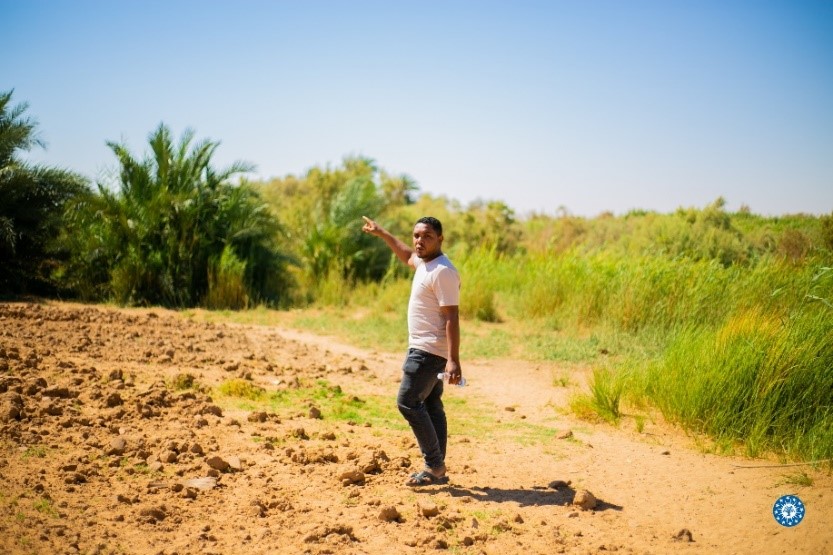
Reflecting on his journey, Saeed believes that farming has taught him invaluable lessons—patience, resilience, and a deep respect for nature. “Working in the fields has taught me never to give up in the face of difficulties” he says. His childhood memories of harvesting fresh fruits and vegetables from the family farm inspire him to continue, dreaming of a future where his children, too, will enjoy the farm’s bounty. “I want them to grow up experiencing the same connection to the land that I had” he adds with hope.
Saeed’s story represents the many challenges that farmers in this region face daily. His tenacity and dedication are examples of how, with the right support, it is possible to overcome seemingly insurmountable obstacles. In response to these challenges, CIHEAM Bari is working within the programme Baladiyati – My Muncipality (Recovery, Stability, Socio- Economic Development in Libya) funded by the European Union through the EU Trust Fund and implemented jointly since 2018 by AICS, UNDP and UNICEF to improve access to basic services and contribute creating livelihood opportunities in the southern Libya, to provide training and technical assistance to farmers in the area, helping to ensure food security and agricultural sustainability.
Saeed’s unwavering dedication to his farm symbolizes the resilience of his entire community. Thanks to targeted interventions and expert guidance, he and other local farmers are not only surviving but thriving, securing a better future for their families and contributing to the growth of their region.
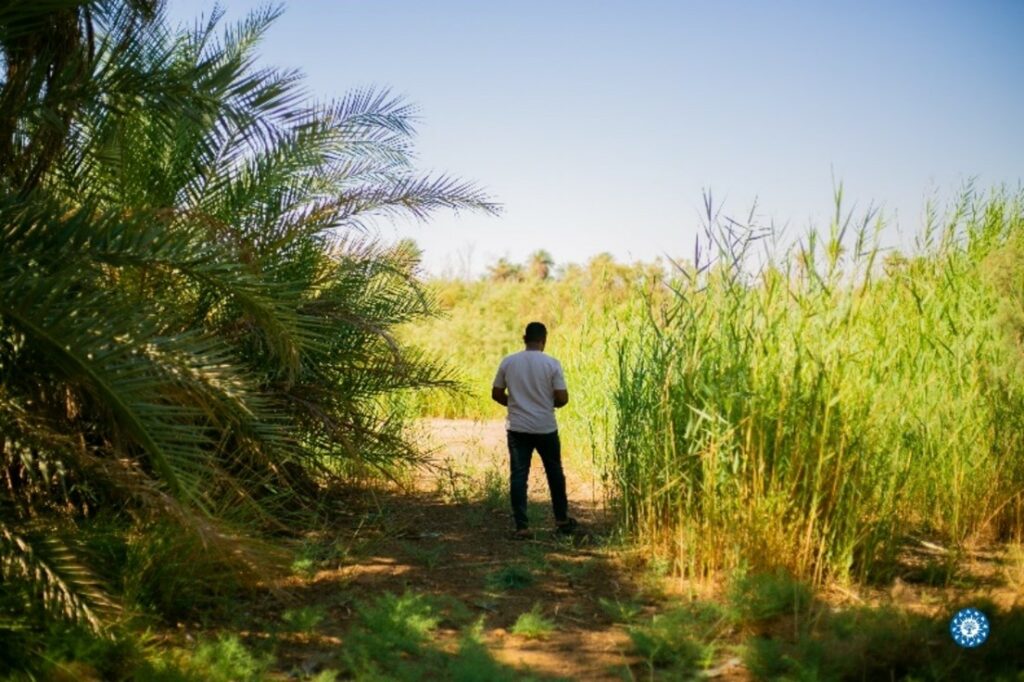
This story was written by AICS based on content collected on ground by CIHEAM Bari
Photo credit: CIHEAM Bari

